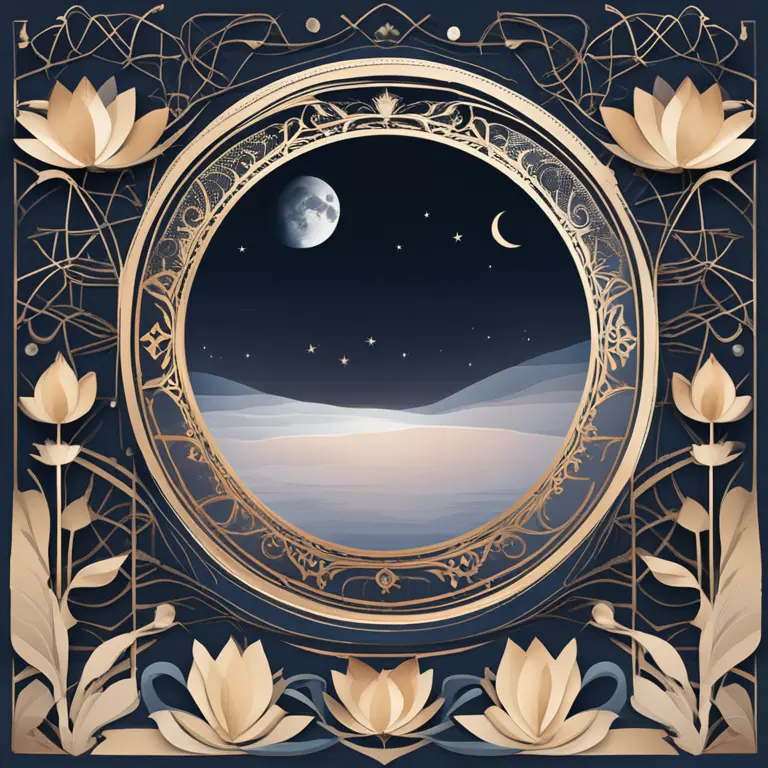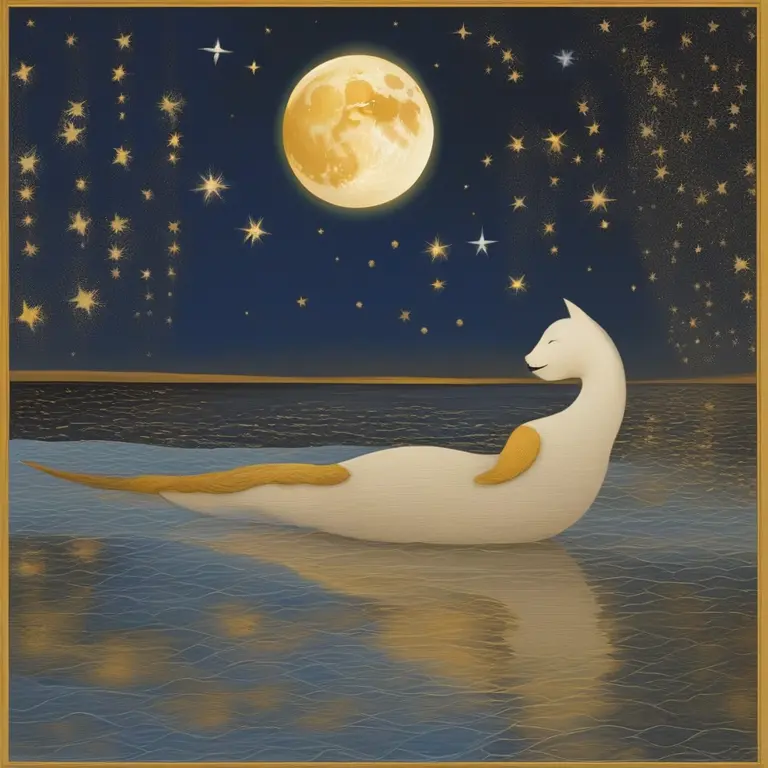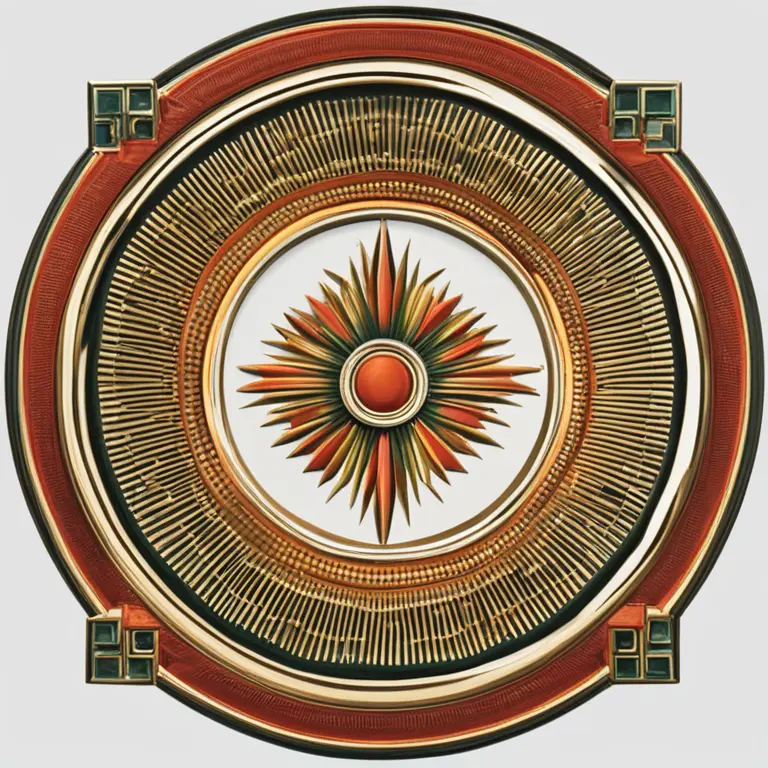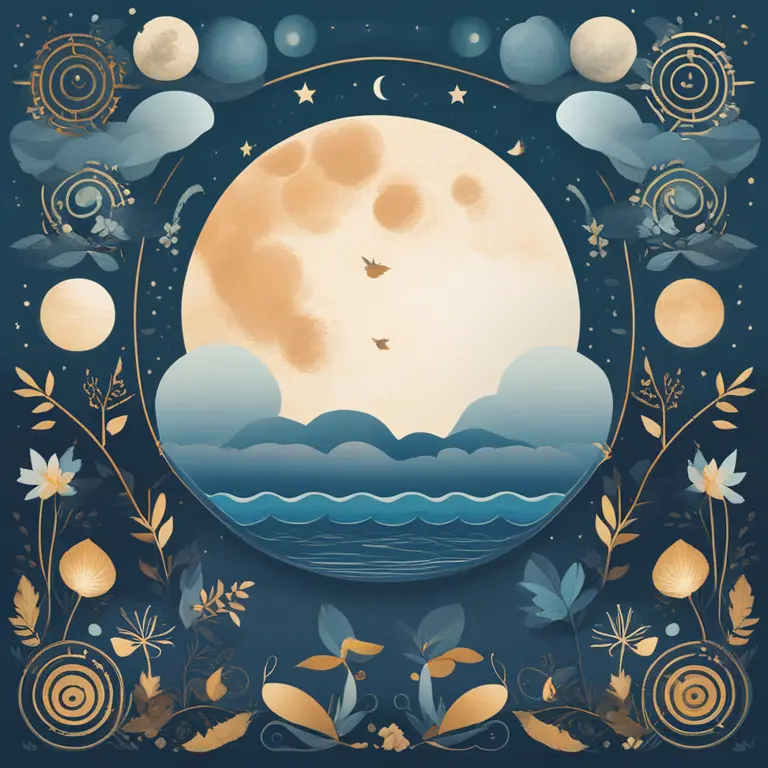
Moon Phases and Their Influence on Sleep Patterns
Investigate the links between moon cycles and sleep quality in this illuminating article about celestial impacts on nightly rest.
article by Priya Deshmukh
The Celestial Sleep Question
Have you ever tossed and turned under the midnight sky, wondering if the moon above plays a role in your elusive search for slumber? The concept that the moon could influence our sleep patterns is an idea as old as time. Various cultures and traditions have long believed that the lunar cycle has a profound impact on human behavior and physiology. Interestingly enough, anecdotal claims now find some support in scientific circles, stirring curiosity about the moon's potential sway over our night-time rhythms.

Lunar Cycles and Circadian Rhythms
As celestial bodies etch their path across the sky, their rhythmic dance with the Earth's natural cycles has been the subject of much speculation. Circadian rhythms, the 24-hour biological clock that governs our sleep-wake patterns, are principally influenced by sunlight. However, emerging studies hint that the lunar cycle, particularly during the full and new moons, might have subtle effects on this intricate internal mechanism. In the search for restful night-time bliss in 2024 and beyond, understanding the potential lunar influence grows ever more relevant.

Scientific Discoveries on Moonlit Nights
Recent research has shed light on the relationship between lunar cycles and sleep. Scientists have observed that around the full moon, individuals may experience reduced sleep quality and find it harder to fall asleep. Specifically, REM (rapid eye movement) sleep, a crucial phase for cognitive processes like memory and learning, seems to be shorter when the moon is full and bright. This intriguing nocturnal revelation points to the moon's luminescence as a possible sleep disruptor, encouraging further scientific exploration.

Astrological Perspectives on Lunar Influence
Diving into astrology, it is held that the moon, ruling the sign of Cancer, governs emotions and internal states, which could in turn affect sleep. Astrologers will mark periods of full or new moons as times for increased emotional sensitivity, potentially leading to restlessness or vivid dreams. As we approach 2025, such astrological insights continue to captivate those seeking to harmonize their life rhythms with universal beats, exploring how cosmic forces might foster deeper self-awareness and daily well-being.

The Skeptic's Viewpoint
While the poetic dance between celestial phenomena and human experience enchants many, skeptics urge caution in inferring direct causation. Variables like urban light pollution, individual lifestyle habits, and psychological predispositions could play significant roles in sleep disruption. The complexity of sleep science means that moon phases might be just one of many contributors to sleep quality, underlining the importance of a multifaceted approach to understanding the nuances of nocturnal rest.
Tips for Better Sleep Regardless of Moonlight
Whether or not moonlight whispers through your windowpane at night, cultivating healthy sleep habits remains paramount. As we sail through the 2020s, consider establishing a calming nighttime routine, moderating screen time before bed, and creating a dark, quiet sleep environment. These practices can help mitigate the potential impact of the moon's phases, ensuring that your journey to dreamland is as smooth as possible, every night of the lunar month.
Published: 1/19/2024
Modified: 1/19/2024
More predictions
Come back here soon to learn more about yourself and your future


Moon Phases: Celestial Dynamics and Impact
Discover the intriguing facts about moon phases and their significance in celestial dynamics, astrology, and personal biorhythms.


The Precision of Moon Phase Watches: A Detailed Review
Delve into the world of astronomical timepieces as we discuss the accuracy of moon phase watches and their place in the realms of timekeeping and astrology.


The Reality of Moon Phase Soulmates
Delve into the mystical concept of moon phase soulmates and discover if there's truth behind the celestial connection.